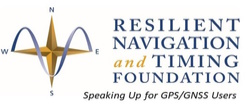Image: Shutterstock
What’s New: Reinforcement from an industry rep of the idea that GPS/GNSS disruption increases risk in aviation.
Why It’s Important: Recognizing the risk is the first step in preventing bad things from happening.
- When things go wrong, companies and industry groups often try to calm the public and customers by reassuring them that “all’s well, remain calm.”
- While there is no need to panic, too much “all’s well” can prevent leaders from taking a problem seriously and addressing it.
What Else To Know:
- Aircraft can find their way from one airport to another without GPS/GNSS. It does make pilot and air traffic controller workloads greater.
- Staffing levels and training become oriented to the technology used every day. When that tech is not available, it is an unusual situation for which the systems inside the cockpit and air traffic control center are not well configured.
- From the article:
“’Using the GPS relieves the pilot and his first officer from a load of work during the flight. This is why lots of errors are occurring during flights – like the Turkish Airlines [flight]’ said the insider.”

Israeli GPS jamming forces airlines to use alternative systems to land in Beirut
Since the start of the war in Gaza, aviation authorities have noticed increased interference with GPS navigation systems
Civilian airliners arriving at Beirut’s airport are having to use alternatives to GPS to help them land because of jamming and “spoofing” blamed on Israel, which risks interfering with flight navigation.
Since the onset of the war on Gaza and the related conflict in south Lebanon, Israel has admitted to increasing GPS jamming in the region in a bid to thwart attacks by Hamas and the Lebanese armed group Hezbollah.
Earlier this week a Turkish Airlines flight ran into difficulties as it began its descent into Beirut because it was still using GPS navigation. It circled the airport for around 40 minutes before having to return to Turkey.


